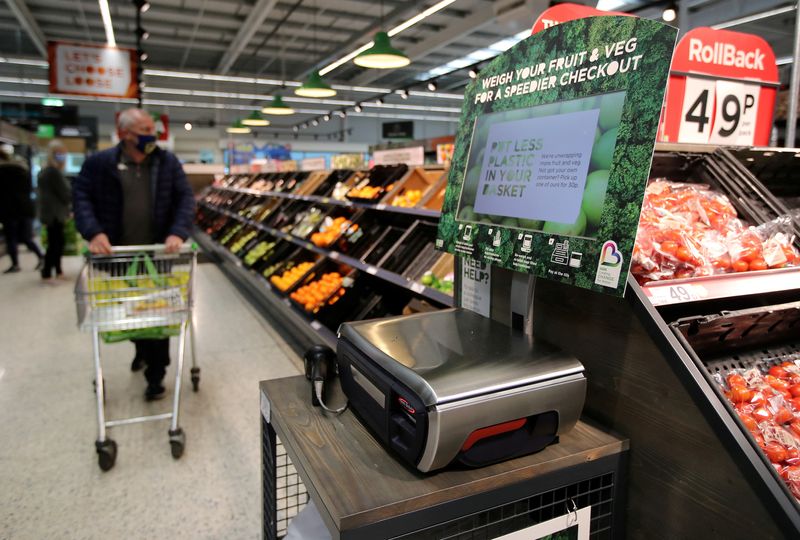“7 in 10 UK Households Bracing for Decline in Cost of Living: NielsenIQ”
LONDON (Reuters) – Around 72% of UK households fear they will be severely or moderately affected by the cost of living crisis in the first half of 2023, up from 54% at the end of last year, survey data from market researcher NielsenIQ showed on Tuesday.
After a tough 2022, UK consumers face even tighter pressures on their finances this year. Inflation is at 10.5%, mortgage rates are rising and the government is cutting support for household energy bills.
According to NielsenIQ, food sales in the UK rose by 7.6% in value terms in the four weeks to January 28, on the back of a rise in food price inflation to 13.8%.
Volume sales, however, fell 6.9% — the lowest volume growth in over nine months, reflecting concerns among shoppers about rising living costs, it said.
“We expect a challenging first quarter for the food industry, with inflation a top priority for shoppers,” said Mike Watkins, UK Head of Retailer and Business Insight at NielsenIQ.
“As a result, shoppers will continue to switch to cheaper branded or private label products.”
Borrowing data from rival market researcher Kantar last week, NielsenIQ said German discounters Aldi and Lidl continued to show strong momentum, with sales growing 21.9% and 17.3% respectively in the 12 weeks ended Jan. 28.
Lidl overtook Morrisons to become the UK’s fifth largest grocer with an 8.9% market share.
Market leader Tesco’s sales rose 8.1%. They were up 8.3% at Sainsbury’s and 7.4% at Asda, but up 0.5% at Morrisons.
NielsenIQ said online share of all FMCG (fast moving consumer goods) sales was 11.1% – similar to the second half of 2022.
Separately, on Tuesday surveys by the British Retail Consortium and Barclays showed that spending at British retailers slowed in January, but the overall picture looked slightly better as consumers indulged in cinema trips and holiday bookings.
(Reporting by James Davey; Editing by Mark Potter)
Don’t miss interesting posts on Famousbio










